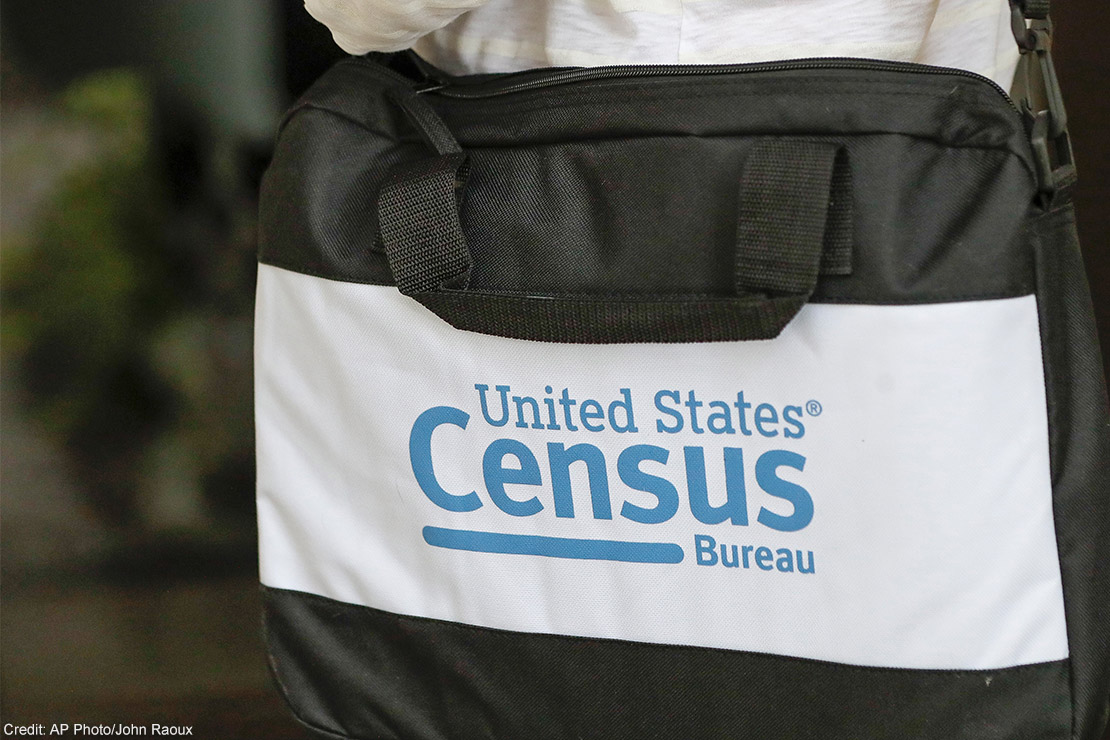Voting Rights
Missouri v. U.S. Department of Commerce
A coalition of civil rights and immigrant-rights organizations has moved to intervene as defendants in a lawsuit that threatens to dismantle the Constitution’s long-standing requirement that the decennial census count all people living in the United States. Missouri asks the court to exclude undocumented immigrants and people living in the country on temporary visas from the census count used to determine congressional representation—an unprecedented move that would upend more than two centuries of constitutional practice.
Status: Ongoing
View Case
Learn ºìÐÓÊÓƵ Voting Rights
Featured
Mississippi
Dec 2025

Voting Rights
White v. Mississippi State Board of Elections
District lines used to elect Mississippi’s Supreme Court have gone unchanged for more than 35 years. We’re suing because the current lines crack the Mississippi Delta and dilute the voting strength of Black Mississippians in state Supreme Court elections, in violation of the Voting Rights Act.
U.S. Supreme Court
Nov 2025

Voting Rights
Racial Justice
Allen v. Milligan
Whether Alabama’s congressional districts violate Section 2 of the Voting Rights Act because they discriminate against Black voters. We succeeded in winning a new map for 2024 elections which, for the first time, has two congressional district that provide Black voters a fair opportunity to elect candidates of their choosing despite multiple attempts by Alabama to stop us at the Supreme Court. Despite this win, Alabama is still defending its discriminatory map, and a trial was held in February 2025 to determine the map for the rest of the decade.
In May 2025, a federal court ruled that Alabama's 2023 congressional map both violates Section 2 of the Voting Rights Act and was enacted by the Alabama Legislature with racially discriminatory intent.
Washington, D.C.
Oct 2025

Voting Rights
League of Women Voters Education Fund v. Trump
On March 25, 2025, in a sweeping and unprecedented Executive Order, President Trump attempted to usurp the power to regulate federal elections from Congress and the States. Among other things, the Executive Order directs the Election Assistance Commission—an agency that Congress specifically established to be bipartisan and independent—to require voters to show a passport or other citizenship documentation in order to register to vote in federal elections. If implemented, the Executive Order would threaten the ability of millions of eligible Americans to register and vote and upend the administration of federal elections.
On behalf of leading voter registration organizations and advocacy organizations, the ºìÐÓÊÓƵ and co-counsel filed a lawsuit to block the Executive Order as an unconstitutional power grab.
U.S. Supreme Court
Oct 2025
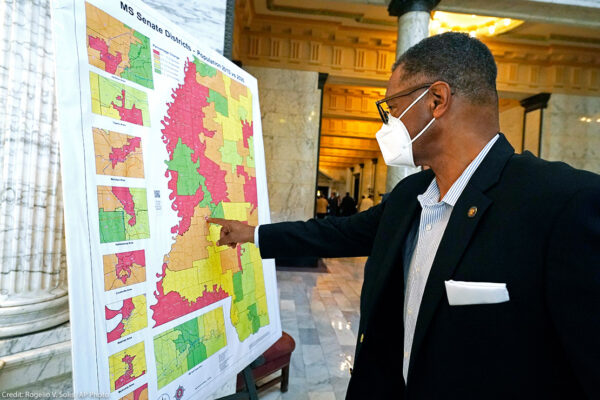
Voting Rights
State Board of Election Commissioners v. Mississippi State Conference of the NAACP
Mississippi has a growing Black population, which is already the largest Black population percentage of any state in the country. Yet. Black Mississippians continue to be significantly under-represented in the state legislature, as Mississippi’s latest districting maps fail to reflect the reality of the state’s changing demographics. During the 2022 redistricting process, the Mississippi legislature refused to create any new districts where Black voters have a chance to elect their preferred representative. The current district lines therefore dilute the voting power of Black Mississippians and continue to deprive them of political representation that is responsive to their needs and concerns, including severe disparities in education and healthcare.
U.S. Supreme Court
Oct 2025

Voting Rights
Louisiana v. Callais (Callais v. Landry)
Whether the congressional map Louisiana adopted to cure a Voting Rights Act violation in Robinson v. Ardoin is itself unlawful as a gerrymander.
Missouri
Sep 2025
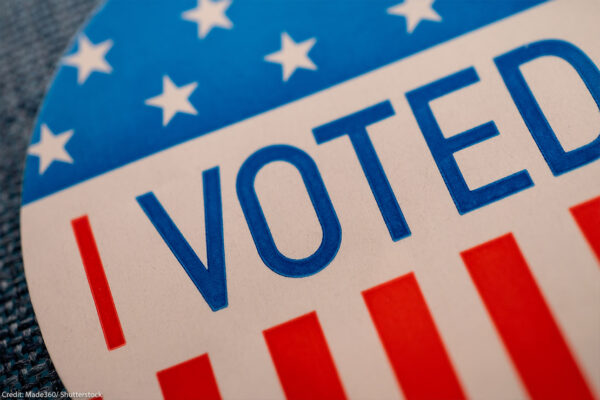
Voting Rights
Wise v. Missouri
In unprecedented fashion, the State of Missouri has redrawn the district lines used for electing members of Congress for a second time this decade. These new district lines are gerrymandered and will harm political representation for all Missourians, particularly Black residents in Kansas City, who have been divided along racial lines.
All Cases
190 Voting Rights Cases
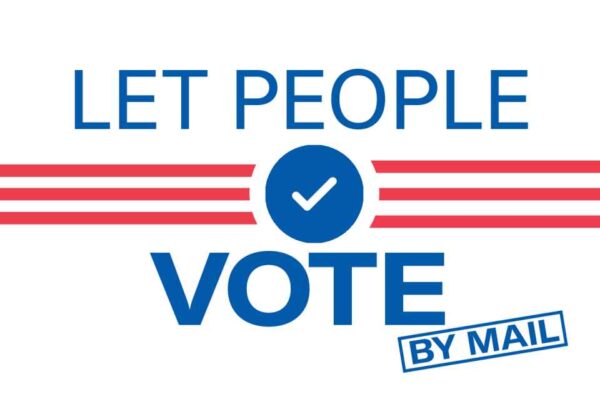
Court Case
Jul 2020
Voting Rights
Chambers v. State of North Carolina
The ºìÐÓÊÓƵ, ºìÐÓÊÓƵ of North Carolina, and Sullivan & Cromwell filed a lawsuit challenging absentee ballot witness requirements that needlessly put North Carolinians at risk of exposure to COVID-19.
Explore case
Court Case
Jul 2020

Voting Rights
Chambers v. State of North Carolina
The ºìÐÓÊÓƵ, ºìÐÓÊÓƵ of North Carolina, and Sullivan & Cromwell filed a lawsuit challenging absentee ballot witness requirements that needlessly put North Carolinians at risk of exposure to COVID-19.

Court Case
Jul 2020
Voting Rights
People First of Alabama v. Merrill
The ºìÐÓÊÓƵ and ºìÐÓÊÓƵ of Alabama have joined a lawsuit brought by the NAACP Legal Defense and Educational Fund, Southern Poverty Law Center, and Alabama Disabilities Advocacy Program seeking to ensure no eligible Alabama voter is denied the right to vote in the 2020 elections due to the COVID-19 pandemic.
Explore case
Court Case
Jul 2020

Voting Rights
People First of Alabama v. Merrill
The ºìÐÓÊÓƵ and ºìÐÓÊÓƵ of Alabama have joined a lawsuit brought by the NAACP Legal Defense and Educational Fund, Southern Poverty Law Center, and Alabama Disabilities Advocacy Program seeking to ensure no eligible Alabama voter is denied the right to vote in the 2020 elections due to the COVID-19 pandemic.

Court Case
Jul 2020
Voting Rights
Connecticut NAACP v. Merrill
The ºìÐÓÊÓƵ and ºìÐÓÊÓƵ of Connecticut filed a federal lawsuit seeking to make mail-in voting available to every eligible voter during the COVID-19 pandemic.
Explore case
Court Case
Jul 2020

Voting Rights
Connecticut NAACP v. Merrill
The ºìÐÓÊÓƵ and ºìÐÓÊÓƵ of Connecticut filed a federal lawsuit seeking to make mail-in voting available to every eligible voter during the COVID-19 pandemic.

Kansas
Jun 2020
Voting Rights
Fish v. Schwab (formerly Fish v. Kobach)
This lawsuit challenges Kansas’ documentary proof-of-citizenship law which requires people, when they register to vote, to show documents to prove their citizenship. It violates the National Voter Registration Act, a federal law designed to make it easier for Americans to register to vote and maintain their registrations.
Explore case
Kansas
Jun 2020

Voting Rights
Fish v. Schwab (formerly Fish v. Kobach)
This lawsuit challenges Kansas’ documentary proof-of-citizenship law which requires people, when they register to vote, to show documents to prove their citizenship. It violates the National Voter Registration Act, a federal law designed to make it easier for Americans to register to vote and maintain their registrations.
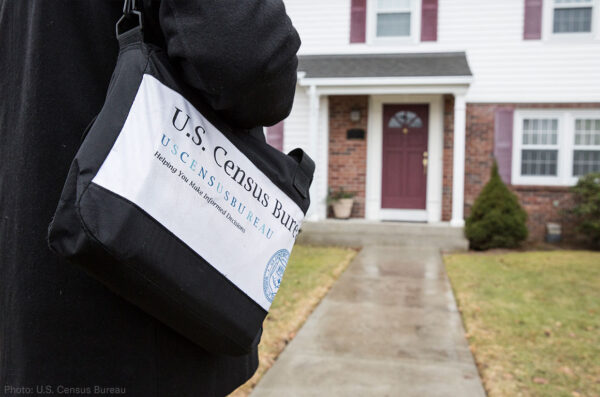
U.S. Supreme Court
May 2020
Voting Rights
Immigrants' Rights
Department of Commerce v. New York
Whether the Secretary of Commerce’s decision to add a citizenship question to the Census was arbitrary and capricious and contrary to law.
Explore case
U.S. Supreme Court
May 2020

Voting Rights
Immigrants' Rights
Department of Commerce v. New York
Whether the Secretary of Commerce’s decision to add a citizenship question to the Census was arbitrary and capricious and contrary to law.
